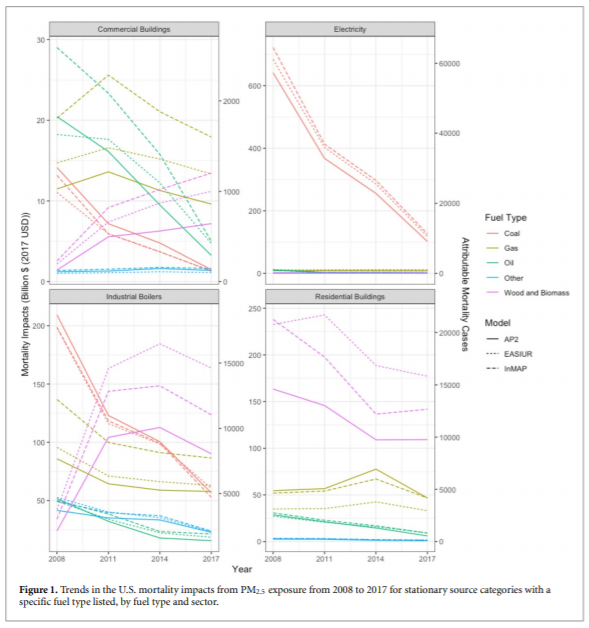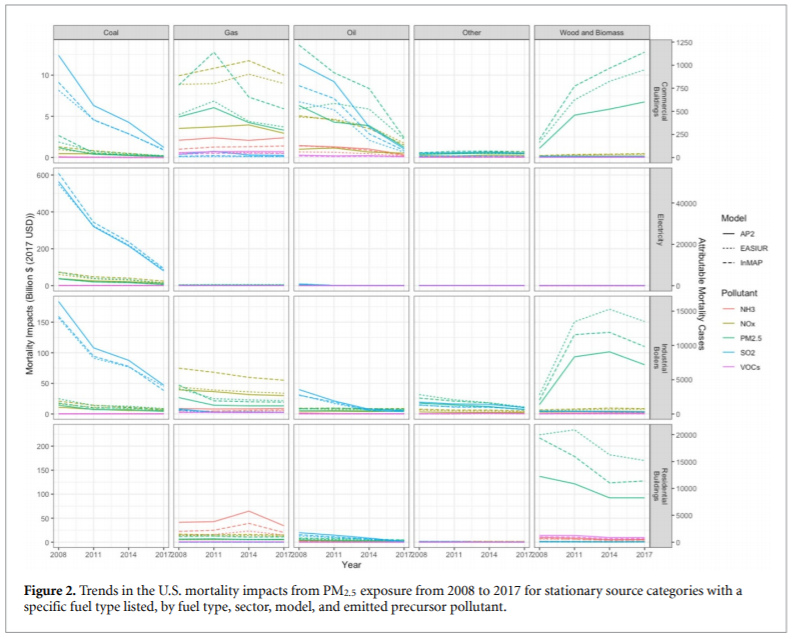Harvard University researchers are painting a misleading picture of their recent study’s findings on mortalities and health care costs resulting from the combustion of fuel sources to provide energy.
The study, which compares particulate matter (PM 2.5) emissions impacts from various uses of coal, natural gas, oil and biomass, has generated headlines focused on natural gas without offering context to the findings – namely that if a fuel source is not being widely used, other fuel sources will have greater impacts.
Perhaps more importantly, is what’s being excluded from these discussions: Natural gas’ mortality impacts from PM 2.5 emissions decreased in all sectors and is nearly zero for electricity generation despite the widespread increased use of the fuel source.

In fact, while natural gas may have a higher share of the impact burden – as the study and coverage has focused on – pollutant emissions from natural gas declined or remained consistent during the study period.

The narrative being perpetuated that this study demonstrates a need to move away from natural gas usage for consumers and electricity generation – despite the researchers’ acknowledgement that “the health impacts of biomass and wood combustion are higher than combustion of coal and gas individually” – is unsurprising given the sponsors of the research, RMI and the Login5 Foundation.
RMI (formally Rocky Mountain Institute) has been vocal in opposing the use of natural gas in homes, as well as for electricity generation, calling the continued investment in natural gas “a bridge backward.” Similarly, Login5 Foundation seeks to move away from fossil fuels in buildings, and has partnered with Harvard on research in this space.
Read the full post on EIDHealth.org.
This post appeared first on Energy In Depth.
